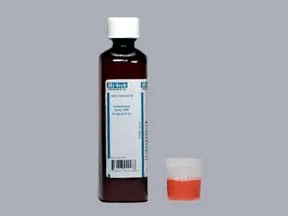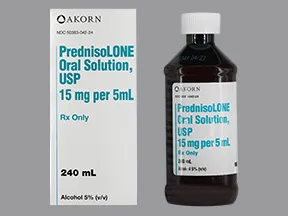rejection of a transplanted organ
infection caused by the trichinae parasite
sarcoidosis
pneumonia with a fungus called Pneumocystis jirovecii
diagnostic test for Cushing's syndrome
increased calcium in the blood from sarcoidosis
a type of cancer of the lymph nodes called Hodgkin's lymphoma
a type of lymphoma involving the skin called mycosis fungoides
non-Hodgkin's lymphoma
multiple myeloma
acute lymphoid leukemia
a hypersensitivity reaction to a drug
a serum sickness reaction
inflammation of the sac surrounding the joint - bursitis
increased calcium in the blood from cancer
thyroid gland inflammation
adrenogenital disorder
a condition where the adrenal glands produce less hormones called Addison's disease
decreased function of the adrenal gland
acute inflammation of the joints due to gout attack
pseudogout, a joint disease with sudden attacks of joint pain
increase in cell growth of adrenal gland present at birth
destruction of red blood cells by body's own antibodies
Diamond Blackfan anemia
anemia from too few young red blood cells
low platelet count and bleeding from immune response
decreased platelets due to a disease state or a drug
neuroendocrine cancer of the prostate gland
Bell's palsy paralysis of one side of the face
myasthenia gravis, a skeletal muscle disorder
a type of inflammation of both eyes
rheumatic fever
acute inflammation of the heart with rheumatic fever
inflammation of the covering of the heart or pericardium
inflammation of the heart
polyarteritis nodosa
inflammation of the artery in the temple area
inflammation of the blood vessels
bronchiolitis obliterans with organizing pneumonia, a lung condition affecting the small airways
nasal polyp
inflammation of the nose due to an allergy
Duchenne muscular dystrophy
severe persistent asthma
worsening asthma
inflammation in the lungs due to an allergic reaction
obstructive pulmonary disease
beryllium poisoning
aspiration pneumonitis, or lung inflammation due to inhaled gastric contents
acute exacerbation of multiple sclerosis
idiopathic pulmonary fibrosis
a respiratory illness called Loffler syndrome
erythema multiforme, a type of allergic skin reaction
allergic bronchopulmonary aspergillosis - fungal infection
Crohn's disease
ulcerative colitis, an inflammatory condition of the intestines
inflammatory bowel disease
a sensitivity to gluten called celiac disease
nephrotic syndrome, a type of kidney disorder
a type of allergy that causes red and itchy skin called atopic dermatitis
contact dermatitis, a type of skin rash that occurs from contact with an offending substance
a type of skin condition with redness and itching called eczema
chronic inflammatory skin disease marked by blisters
pemphigus, a type of skin disorder
pemphigoid, a blistering skin disorder
a skin disorder with blistering and peeling skin called Stevens-Johnson syndrome
skin rash with sloughing
psoriasis associated with arthritis
psoriasis
systemic lupus erythematosus, an autoimmune disease
a condition with dry eyes, dry mouth and arthritis called Sjogren's syndrome
inflammation of skin and muscles all over the body
a type of allergic reaction called angioedema
rheumatoid arthritis
joint inflammatory disease in children and young adults
ankylosing spondylitis, a rheumatic disease causing pain and stiffness in backbone
muscle pain and stiffness in the shoulder, neck and pelvis
inflammation of the elbow and surrounding tissue
inflammation of a tendon
inflammation of the covering of a tendon
inflammation of the lining of a joint
metastatic prostate carcinoma
pyoderma gangrenosum, a condition where large painful skin sores form
liver inflammation resulting from an abnormal immune response


